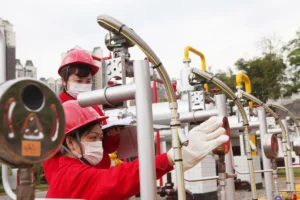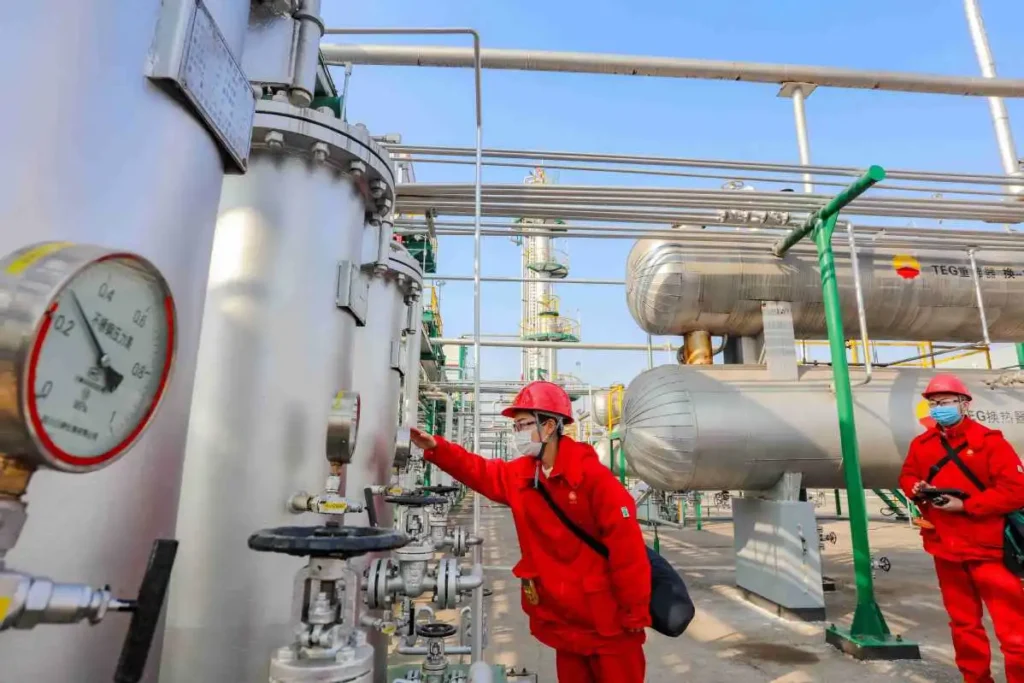In May 2025, Nigeria recorded a modest rise in natural gas production, reaching 7.35 billion standard cubic feet per day (bscfd). However, despite this uptick, domestic distribution fell for the second consecutive month, falling by approximately 10.6% compared to April. This decline highlights a growing disconnect between production potential and local availability, raising serious concerns about energy access and infrastructure readiness.
Export Takeover Hampers Local Supply
A shift toward export markets largely explains this supply gap. With lucrative LNG contracts and international demand on the rise, producers are allocating larger volumes abroad. This shift boosts foreign revenue—but constrains supply needed locally for power generation, household use, and industry.
Further, pipeline constraints and maintenance bottlenecks along key domestic corridors have throttled gas flow. Meanwhile, commercial demand remains subdued, as inflation and subsidy reforms deter industrial end-users from increasing consumption. The resulting drop in local sales—from roughly 57 bscfd to 51 bscfd—has signaled trouble for intended beneficiaries.

Consequences for Energy Security and Growth
The decline in gas supply threatens several critical national objectives:
-
Power generation: With gas fueling much of the national grid, lower supply undermines electricity reliability.
-
Clean energy transition: Gas-to-LPG and gas-to-CNG programs require stable deliveries to reduce reliance on wood and kerosene.
-
Inflation: As energy costs continue to rise, reduced gas availability adds pressure to national inflation, already nearing 23%.
Without supply stabilization, ambitious energy plans risk overstretching in an economy already weakening.
Infrastructure: A Weak Link
Key projects like the Ajaokuta–Kaduna–Kano (AKK) pipeline and OB3 system aim to improve internal gas connectivity once complete. However, progress has lagged, and vandalism, leaks, and security incidents persist. These interruptions worsen supply volatility and undermine potential gains from new infrastructure.
The growing pipeline theft and vandalism crisis demands urgent attention—rampant sabotage not only disrupts delivery but also increases repair costs and safety risks.
Policy Adjustments Needed
To resolve these supply challenges while capturing export revenues, Nigeria must prioritize a balanced strategy:
-
Pipeline upgrades and security: Speed up AKK/OB3 completion and protect key infrastructure through surveillance and patrols.
-
Domestic volume obligations: Enforce policies that guarantee a set gas allotment to local markets before export allocation.
-
Demand stimulation: Offer incentives (e.g., lower tariffs, conversion grants) to industries and households to boost local consumption.
-
Transparent pricing: Tie domestic gas prices to global benchmarks, while giving temporary relief to critical sectors like agriculture and power.
By adopting these measures, Nigeria could preserve domestic supply without losing export revenue.
Broader Energy Ambitions at Stake
The government has declared intentions to stop routine gas flaring by 2030 and boost clean energy use in cooking and industry. Achieving this requires not only production growth but also ensured delivery. Gas-based power expansion, CNG adoption, and reliable energy access hinge on stable midstream capacity and distribution.
Regional projects—including West African gas corridors and future pipelines—depend equally on a strong domestic foundation. Without addressing internal supply issues, Nigeria may produce record volumes but fail to serve its own energy needs.
Looking Forward
May’s data shows that Nigeria continues to produce gas steadily. Yet, without reversing domestic supply declines, production increases risk fueling exports only—not national prosperity. Closing the gap between what’s produced and what reaches users requires:
-
Strategic infrastructure investments
-
Strong policy enforcement
-
Demand-side programs
-
Reliable pricing and regulation
These reforms can help Nigeria transform gas production into energy access, industrial growth, and economic stability. The country now faces a pivotal moment: ensure that production serves national needs as well as global markets—or risk missing its energy potential.







